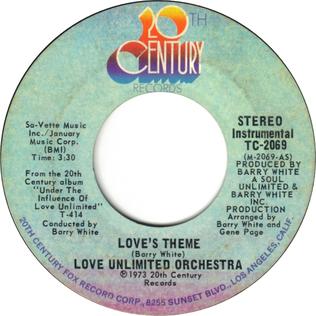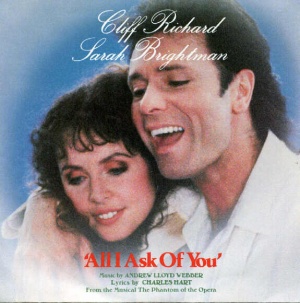
Air Supply are a soft rock duo, consisting of English singer-songwriter and guitarist Graham Russell and Australian lead vocalist Russell Hitchcock. They had a succession of hits worldwide, including eight Top Ten hits in the United States, in the early 1980s. They formed in Australia in 1975 and have included various accompanying musicians and singers. The Australian Recording Industry Association (ARIA) inducted Air Supply into their Hall of Fame on 1 December 2013 at the annual ARIA Awards.

"I Honestly Love You" was a worldwide pop hit single for Olivia Newton-John in 1974. The song was Newton-John's first number-one single in the United States and Canada.

"The One I Love" is a song by American alternative rock band R.E.M. It was released on the band's fifth full-length studio album, Document, and also as a 7" vinyl single in 1987. The song was their first hit single, reaching No. 9 in the US Billboard Hot 100, No. 14 in Canada, and later reached No. 16 in the UK singles chart on its UK release (1991). The song was included in Activision's Guitar Hero World Tour and is in Guitar Hero on Tour: Decades, as well as Harmonix's Rock Band 4.

"Love at First Feel" is a song by Australian hard rock band AC/DC. It is the second track of the international version of their album Dirty Deeds Done Dirt Cheap, released in November 1976, and was written by Angus Young, Malcolm Young, and Bon Scott. The international version was not released in the United States until April 1981.

To Whom It May Concern is a 1972 album by the Bee Gees. Released in October 1972, it was the follow-up, and continued the melancholic and personal sound of its predecessor Trafalgar. The album was recognized as "a farewell to the old Bee Gees" as the album marked the end of an era for the group in several ways: it was their last album to be recorded solely at IBC Studios, in London, their last with conductor and arranger Bill Shepherd who had guided them since 1967, and their last under their first contract with Robert Stigwood. Some of the songs were old ones finished up or rewritten for the occasion. To Whom It May Concern has sold approximately 350,000 copies worldwide.
Ol' 55 was an Australian band specialising in retro, 1950s-era Rock 'n' Roll. They formed as Fanis in 1972 in Sutherland, Sydney. Drummer Geoff Plummer was working with Glenn A. Baker at the NSW Department of Media and invited Baker to hear his part-time band, including Patrick "Meatballs" Drummond, Rockpile Jones and Jimmy Manzie. In 1975, Baker took on their management, renamed them as Ol' 55 for the Tom Waits song, and recruited front man Frankie J. Holden and, later in the year, saxophonist Wilbur Wilde.
"When You Walk in the Room" is a song written and recorded by Jackie DeShannon, released as a single on November 23, 1963 as the B-Side to "Till You Say You'll Be Mine".

"I've Been Losing You" is a song by Norwegian band A-ha. It was the first single taken from their 1986 Scoundrel Days album. It reached number one in Norway, and number eight in the UK. It achieved worldwide sales of over 1.1 million copies.

"Love's Theme" is an instrumental piece written by Barry White and recorded by Barry White's the Love Unlimited Orchestra and released in 1973 as a single. It is one of the few instrumental and purely orchestral singles to reach #1 on the Billboard Hot 100 chart in the United States, which it did in early 1974. Billboard ranked it as the #3 song for 1974. The piece was included on two albums: 1973's Under the Influence of... Love Unlimited and 1974's Rhapsody in White by the Love Unlimited Orchestra.

"All I Ask of You" is a song from the English musical The Phantom of the Opera, between characters Christine Daaé and Raoul, originally played on stage by Sarah Brightman and Steve Barton, respectively. It was written by Andrew Lloyd Webber, Charles Hart and Richard Stilgoe, and solely produced by Lloyd Webber. An operatic pop piece, its lyrics serve as dialogue between the two characters and discuss themes such as commitment and romance. Like Lloyd Webber's song "The Music of the Night", "All I Ask of You" was compared to the music found in Giacomo Puccini's 1910 opera La fanciulla del West.
"Last Romance" is a song by Australian singer songwriter Mark Holden. It was released as the third and final single from Holden's second studio album, Let Me Love You (1976). The song was a commercial success peaking at number 11 on the Kent Music Report.

"Never Gonna Fall in Love Again" is a song co-written and recorded by American pop rock artist Eric Carmen. It was released as the second single from Carmen's self-titled debut solo album, the song peaked at number 11 on the Billboard Hot 100 chart in June 1976, remaining in the Top 40 for ten weeks. The song reached number one on the Billboard Easy Listening chart.
Dear Enemy was an Australian indie pop band formed in Melbourne in 1980. The band released a studio album, Ransom Note, in 1984 on EMI and Capitol Records that featured its best known single, "Computer One", a No. 15 hit on the Australian Kent Music Report Singles Chart in January 1984. "Computer One" also reached #59 on the Billboard US Mainstream Rock chart in March, 1984. Dear Enemy disbanded in 1988.
"The Greatest Love of All" is a song written by Michael Masser, who composed the music, and Linda Creed, who wrote the lyrics. It was originally recorded in 1977 by George Benson, who made the song a substantial hit, peaking at number two on the US Hot R&B/Hip-Hop Songs chart that year, the first R&B chart top-ten hit for Arista Records. The song was written and recorded to be the main theme of the 1977 film The Greatest, a biopic of the boxer Muhammad Ali. Eight years after Benson's original recording, the song became even more well known for a version by Whitney Houston, whose 1985 cover eventually topped the charts, peaking at number one in the United States, Australia, Canada and on the US Hot R&B/Hip-Hop Songs in early 1986.

"You" is a 1977 single by Australian recording artist Marcia Hines, first recorded by writer Tom Snow on his 1975 Taking It All In Stride LP. "You" was the second single from her third studio album, Ladies and Gentlemen, released in October 1977. It peaked at No. 2 in Australia, and remains Hines' highest charting single in Australia.
"Say I Love You" is a song written by Eddy Grant in 1979. The song was first released on Grant's 1979 album Walking on Sunshine.

"I Wanna Make You My Lady" is a song by Australian singer songwriter Mark Holden. It was recorded and released as the second single from Holden's second studio album, Let Me Love You (1976). The song was a commercial success in Australia, peaking at number 11 on the Kent Music Report.
"Hey, My Love" is a song by Australian singer songwriter Mark Holden. It was released in February 1977 and peaked at number 32 on the Kent Music Report.

Let Me Love You is the second studio album by Australian singer-songwriter Mark Holden. The album was released in October 1976. The album was certified Gold for more than 50,000 copies in Australia.













